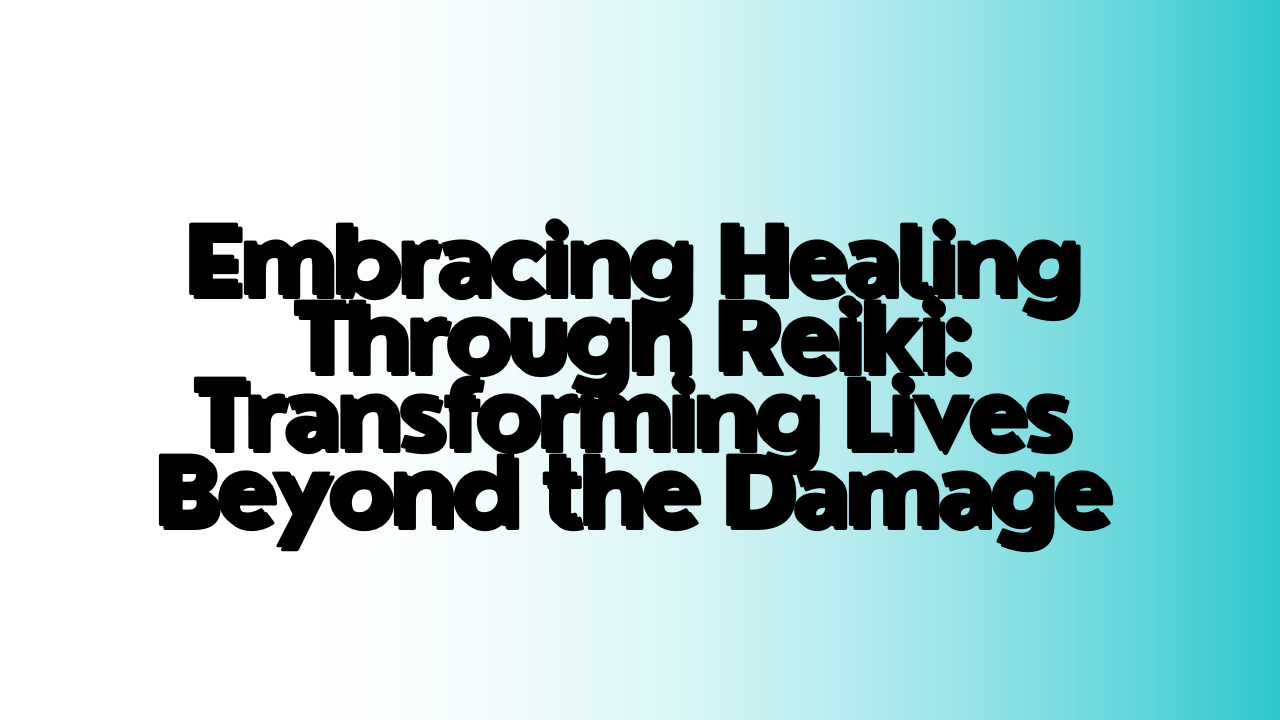In the journey of life, each of us will face moments of hardship and pain. Whether these are physical wounds or emotional scars, they can often leave a lasting impact that seems to dictate the course of our lives. However, healing is not about erasing these marks of our past but finding a way to not let them control us. One profound method of achieving this transformation is through the practice of Reiki, a form of energy healing that originated in Japan in the early 20th century. This article explores how Reiki can help us embrace healing in a way that acknowledges our past damage but frees us from its grasp.
The Essence of Reiki
Reiki is based on the principle that the practitioner can channel universal energy to the patient by means of touch, to activate the natural healing processes of the patient’s body and restore physical and emotional well-being. It operates not just on the physical level but seeks to balance the energies within our body, promoting a sense of harmony and wellness that is crucial for overcoming past trauma and pain.
Beyond the Damage
When we experience any form of hurt, it’s as though a mark has been left on our soul. These scars can make us feel as though we are forever broken, forever changed. But here lies the beauty of Reiki: it teaches us that while the damage may never fully disappear, it does not have to define us. Through the gentle, nurturing energy of Reiki, individuals can experience a profound sense of release and relief. This doesn’t mean that the physical or emotional pain is magically erased; rather, it’s an acknowledgment that the pain no longer holds power over our lives.
Reiki and Emotional Healing
One of the most significant benefits of Reiki is its ability to aid in emotional healing. Many of us carry burdens from our past – grief, anxiety, depression, and other emotional traumas that can seem insurmountable. Reiki provides a space for these feelings to surface in a safe and controlled environment, promoting a healing process that might otherwise seem impossible. By channeling positive energy and focusing on areas of the body and mind that are in distress, Reiki encourages the release of emotional blockages, making way for peace and stability.
Physical Healing and Reiki
Although less visible, the impact of emotional and mental scars can often manifest physically in our bodies. Chronic stress, for example, can lead to a plethora of health issues. Here again, Reiki steps in as a gentle yet powerful healer, aiding not only in the reduction of stress but also in alleviating physical pain, improving sleep patterns, and boosting the body’s immune system. By restoring balance to the body’s chakras (energy centers), Reiki encourages overall well-being that transcends the physical sphere.
Empowerment and Moving Forward
Perhaps the most remarkable aspect of Reiki healing is the sense of empowerment it provides. Healing through Reiki is a journey of self-discovery, where individuals learn to reconnect with their inner strength and wisdom. It’s a process that fosters resilience, allowing us to move beyond the past and embrace a future where we are no longer defined by our scars but are instead guided by our newfound strength and peace.
Conclusion
The essence of healing through Reiki lies in understanding that while the damage from our past may never be completely gone, it does not have the power to define our existence. Reiki offers a pathway to a life where these scars are acknowledged, not as symbols of pain, but as marks of survival and growth. In embracing Reiki and its principles, we open ourselves up to the profound possibility of transformation – where the damage no longer controls our lives, but instead, becomes a testament to our resilience and capacity for healing.


